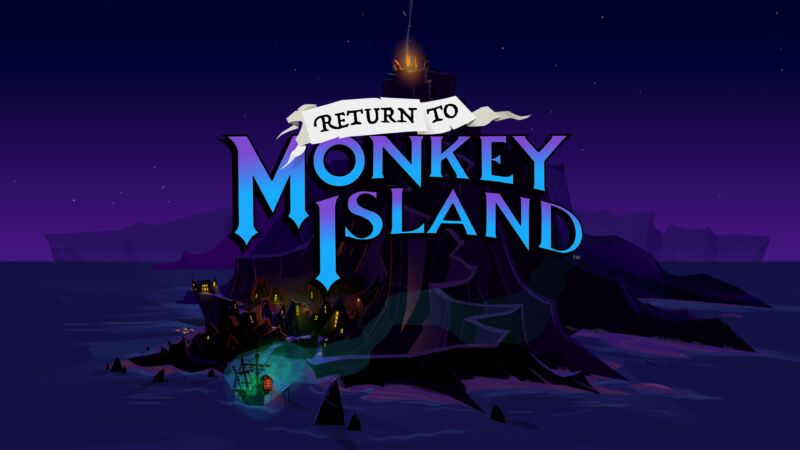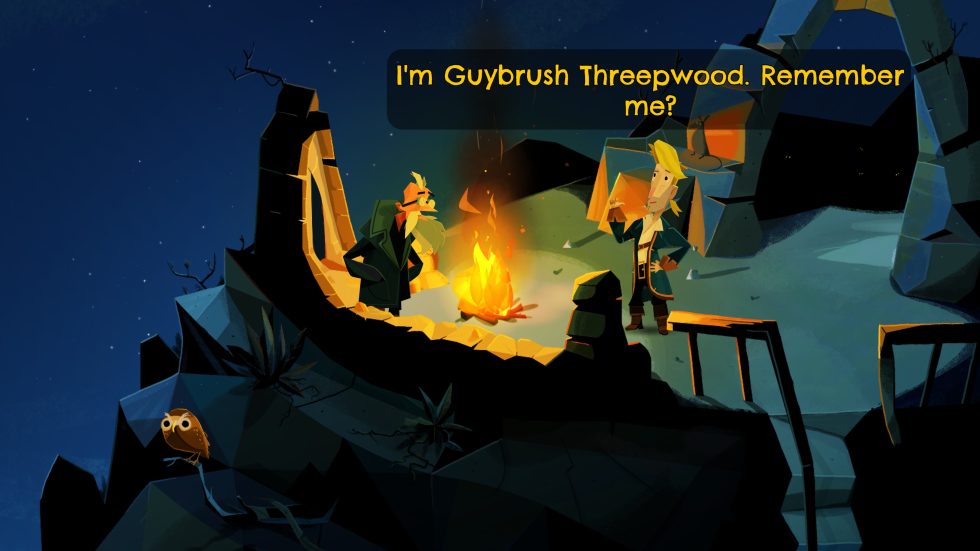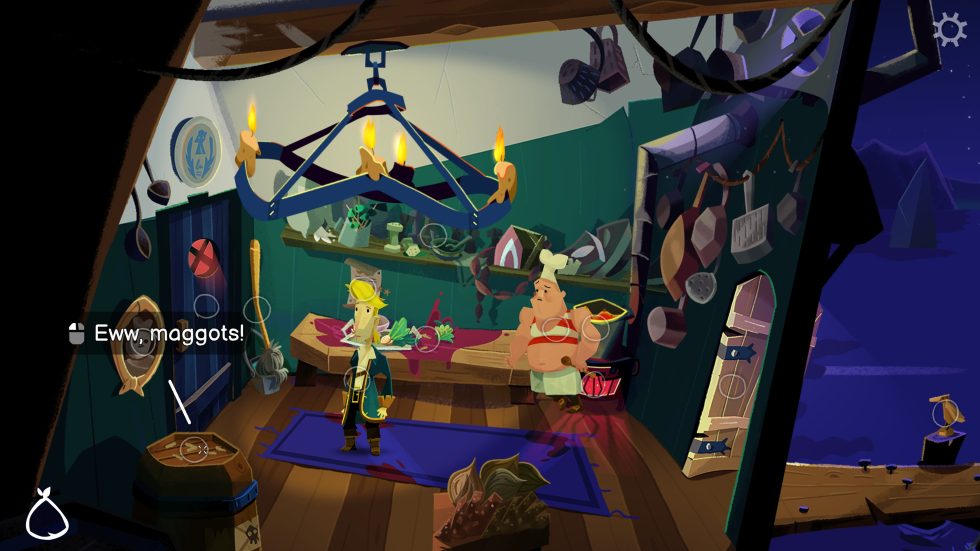
For a certain kind of adventure gaming fan, no sentence is harder to hear than this: "I learned the secret of Monkey Island before you did." But I can now say it. I've played, completed, and fallen madly for Return to Monkey Island, a sequel more than three decades in the making. This is a game full of laughs, whimsy, and puzzles as carefully constructed as the stories that surround them.
But I'm not here to spoil any of your upcoming pirate fun. I've been writing reviews for long enough to remember how great it felt to read about a new video game before playing a single minute of it. That's how we did things while saving up enough money to get our own boxed copies of older Monkey Island games, then prying them open and figuring out their Dial-a-Pirate copy-protection puzzles.
Return to Monkey Island is nearly everything I'd hoped for in a modern return to the series. Its interface and controls split the difference between the expectations of hardcore genre fans and those of point-and-click novices. Its presentation and voice acting pair nicely to set an approachable and fiendishly hilarious tone. And the game's full journey, from bumpy waters to smooth, silly sailing, consistently feels personal, vulnerable, and reflective of its creators—which is to say, this is the opposite of a nostalgia-reeking cash-in.
More accessibility, fewer verbs

I'd like to begin not by spoiling the game's plot (you're safe here!) but by applauding RtMI's clever refresh of the point-and-click adventure concept. Indeed, this game delivers some of the best stuff the genre has seen in years.
As the game's title implies, players return to Monkey Island. The setting and characters are familiar, with wannabe pirate Guybrush Threepwood insisting that he has unfinished business on the titular island, and a lot of what he does resembles the series' earliest games: solve puzzles, choose from lighthearted dialogue options, and pick between the jokes to find useful clues for the next objective.
Like other point-and-click classics, RtMI on PC supports the use of a mouse to do pretty much everything. Click the ground to move Threepwood around. Click to talk to people you see. Click to examine or pick up objects (so long as Threepwood can walk up to them). Click again to peruse an inventory of things you've found, then click some more to either combine those objects in clever ways or to use those objects on stuff around you. Classic example: find a key, walk to a door, and use the key on the door. Why, you're a bona-fide master of unlocking!
Unlike the series' earliest installments, RtMI skips the dated "verb" interface. Instead of having to clarify that you want to "look at," "use," or "talk to" something in the game, you now get one or two automatic verb suggestions while mousing over anything. Most modern adventure games have gone this route, so it's unsurprising to see it here, and the results feel natural and comfortable enough.

The same goes for other quality-of-life tweaks. If you'd like help recognizing which objects in a zone can be interacted with, hold down the "tab" key, and any interactive items get a faint highlight. (If that sounds bad to you, don't touch that button.) And if you'd like to have a generally easier time interacting with the game's worlds, trade the mouse-and-keyboard setup for a standard gamepad, which also includes shortcut buttons to highlight and auto-walk to useful objects. If not, don't plug in a controller—though the system works fluidly and naturally if you're on a gamepad-only platform like Nintendo Switch or Steam Deck.
Returning to an age of friendly computer clubs
RtMI's biggest differentiator comes from a built-in hint system, which I found myself a lot more charmed by than I expected. Before I explain why I love the hint system, pro players can breathe easy: this optional system includes no witty jokes, no sly series references, and no other reasons to peek if you have the iron stomach for solving this game's puzzles without help.
My time with RtMI reminded me of the computer gaming community of old: the one where the mere act of owning a gaming-grade computer bonded people together. Computer clubs had a common language of unique software and games, meaning you could expect to have peers who wanted to sleuth out certain games' aggravating puzzles. When you played the two earliest Monkey Island games, you had a gameplay element that didn't ship in the box: a nerdy support group. Hints from these groups came in gentler shapes than the ones found in the modern era's online, SEO-obsessed hint guides.
Shortly after RtMI begins, a character offers you a hint book with a winking acknowledgement that some sort of game-like thing is happening behind a fourth wall. (This book is not the same as Guybrush Threepwood's to-do list, which has zero spoilers and reminds players what their next objectives are at any point in the quest.) Whenever you might get stuck or slowed down, tap the hint book in your inventory, and it will fill the screen with reminders of the tasks in your to-do list. Pick any of these, and the hint book will open with a vague suggestion, usually in the form of a mild rephrase of whatever the task is. Maybe that rephrasing is enough of a nudge to let you shut the hint book and try again.
Still stuck? Flip the page for a further clue, and the hint book will ask players a helpful, leading question. Maybe this will get the gears in your brain turning, or maybe it will remind you of a character or place you previously encountered. If that's not enough, flip the hint page again, and you'll get a firmer suggestion, often in the form of "go to this place and look more carefully." From here, one or two more hints are available, which usually end by outright telling you what to do.
reader comments
89